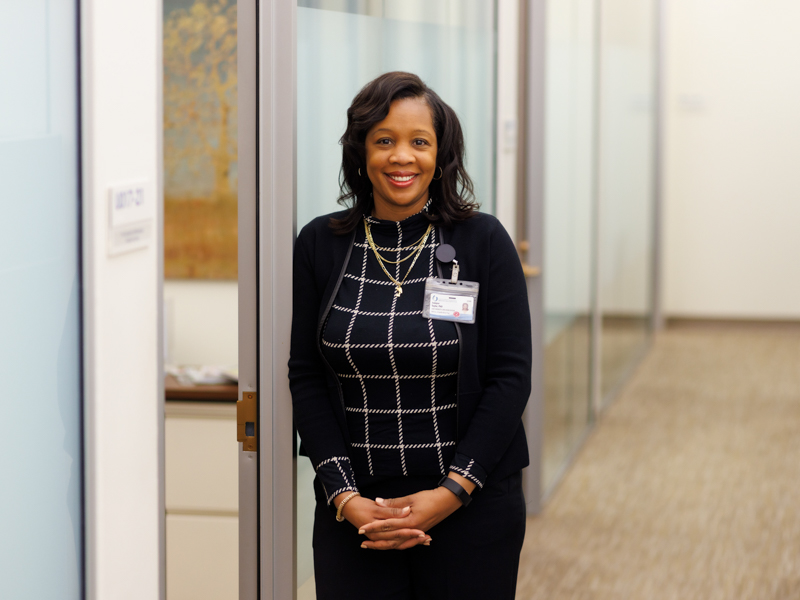Front and Center: Juanyce Taylor

Editor's Note: In honor of Black History Month’s 2022 theme, Black Health and Wellness, we want to celebrate the contributions, breakthroughs and cultural richness of Black professionals and students at UMMC. See more Front and Center features.
There’s really not a typical day in the UMMC Office of Diversity and Inclusion led by Dr. Juanyce Taylor, but what is typical is the amount of energy, thought and passion that goes into fostering respect for different points of view across campus.
“Our day is very volatile in the sense that we could be engaging in training and education, and the next hour, I’m consulting with a faculty member or group on their strategic diversity plans,” said Taylor, the Medical Center’s chief diversity and inclusion officer.
Taylor’s office is referred to as ODI. It guides strategies for integrating diversity and promoting excellence into UMMC’s three mission areas of education, research and health care. ODI
fosters a climate of inclusion throughout the workforce and student body, enabling the entire academic health center to benefit from each individual’s unique talents and perspective.
“The importance of us engaging in a lot of education, training and communication around DEI is for people to have a better understanding of it,” said Taylor, who leads a four-person team. “There are so many gray areas when it comes down to what people think diversity is.
“We are trying to expand offerings across the entire campus – to every group as it relates to our workforce, the learning environment, and the health care we provide as an institution.”
ODI leads myriad initiatives that draw in employees and students and give diversity and inclusion a chance to blossom and have tangible meaning. Just one example: A basic medical Spanish course that this year attracted more than 100 learners, becoming a staple for first-year students in the School of Medicine.
“We have a growing Hispanic population in our health care system. We want to give our providers and learners confidence when interacting and communicating with other cultures,” she said.
And, ODI offers a six-month CHAMPION program that provides professional development training online. “We have enrolled over 300 champions, and we’re in our fourth cohort,” Taylor said.
Add to that monthly inclusive conversation gatherings that bring in speakers from nonprofits and other state higher education institutions to highlight topics ranging from evidence-based research to disabilities to gender roles to racism to human trafficking and domestic violence.
Taylor’s accomplishments have been recognized on the national level, including her selection in 2017 for the National Association of Medical Minority Educators Diversity Leadership Award.
The Clinton resident with a college-aged daughter comes to her position with a unique perspective: A Jackson native, Taylor grew up on campus in the 1970s, living in the former student apartments with her parents as her father attended medical school.
She is dedicating her life’s work to her dad.
“What would he think of me working here, and would he think I’ve made a difference? Have things changed since he was here?” she said.
“To be sincere and true to equity, we must understand it.”


